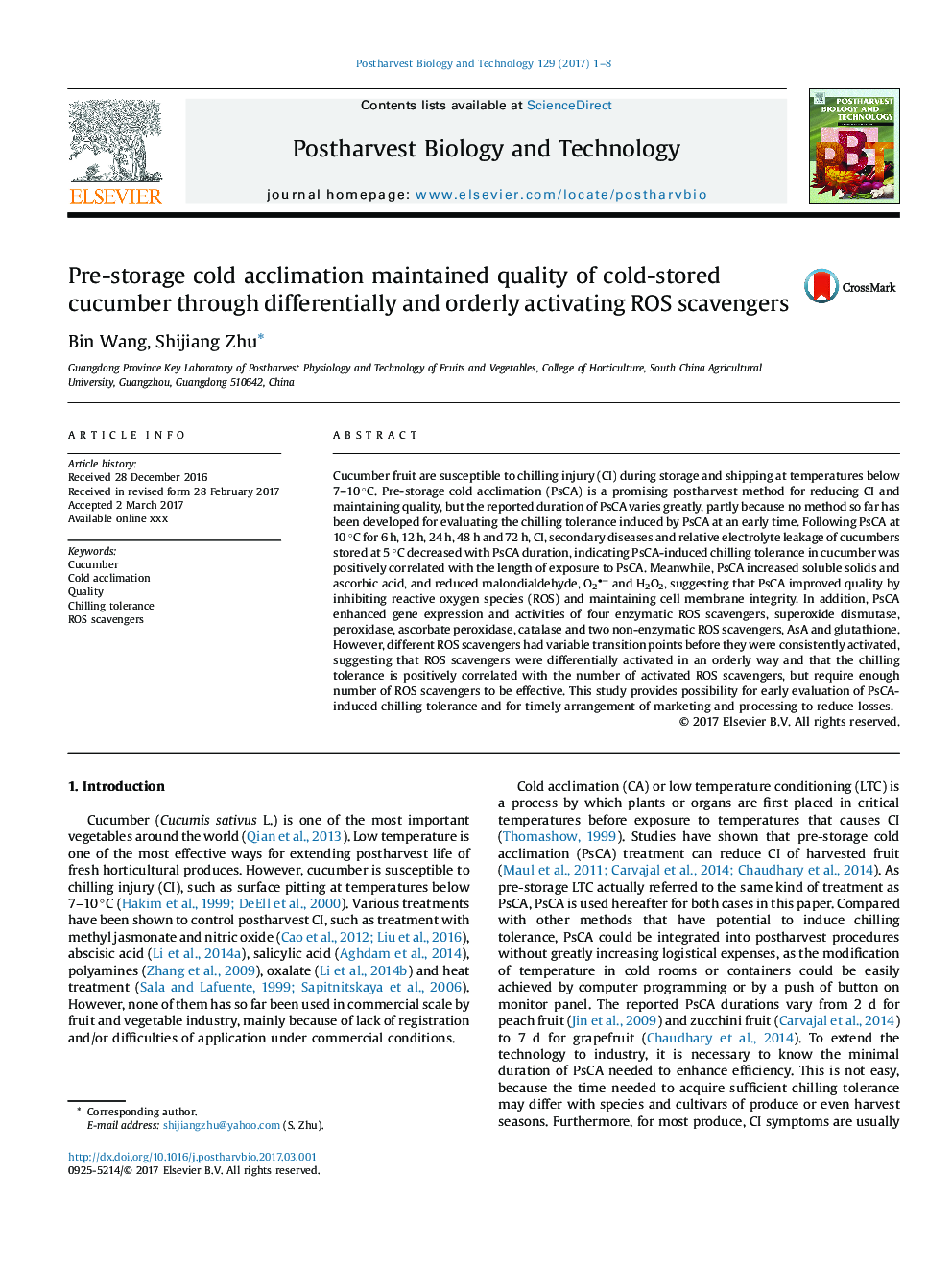| Article ID | Journal | Published Year | Pages | File Type |
|---|---|---|---|---|
| 5762706 | Postharvest Biology and Technology | 2017 | 8 Pages |
Abstract
Cucumber fruit are susceptible to chilling injury (CI) during storage and shipping at temperatures below 7-10 °C. Pre-storage cold acclimation (PsCA) is a promising postharvest method for reducing CI and maintaining quality, but the reported duration of PsCA varies greatly, partly because no method so far has been developed for evaluating the chilling tolerance induced by PsCA at an early time. Following PsCA at 10 °C for 6 h, 12 h, 24 h, 48 h and 72 h, CI, secondary diseases and relative electrolyte leakage of cucumbers stored at 5 °C decreased with PsCA duration, indicating PsCA-induced chilling tolerance in cucumber was positively correlated with the length of exposure to PsCA. Meanwhile, PsCA increased soluble solids and ascorbic acid, and reduced malondialdehyde, O2â and H2O2, suggesting that PsCA improved quality by inhibiting reactive oxygen species (ROS) and maintaining cell membrane integrity. In addition, PsCA enhanced gene expression and activities of four enzymatic ROS scavengers, superoxide dismutase, peroxidase, ascorbate peroxidase, catalase and two non-enzymatic ROS scavengers, AsA and glutathione. However, different ROS scavengers had variable transition points before they were consistently activated, suggesting that ROS scavengers were differentially activated in an orderly way and that the chilling tolerance is positively correlated with the number of activated ROS scavengers, but require enough number of ROS scavengers to be effective. This study provides possibility for early evaluation of PsCA-induced chilling tolerance and for timely arrangement of marketing and processing to reduce losses.
Related Topics
Life Sciences
Agricultural and Biological Sciences
Agronomy and Crop Science
Authors
Bin Wang, Shijiang Zhu,
